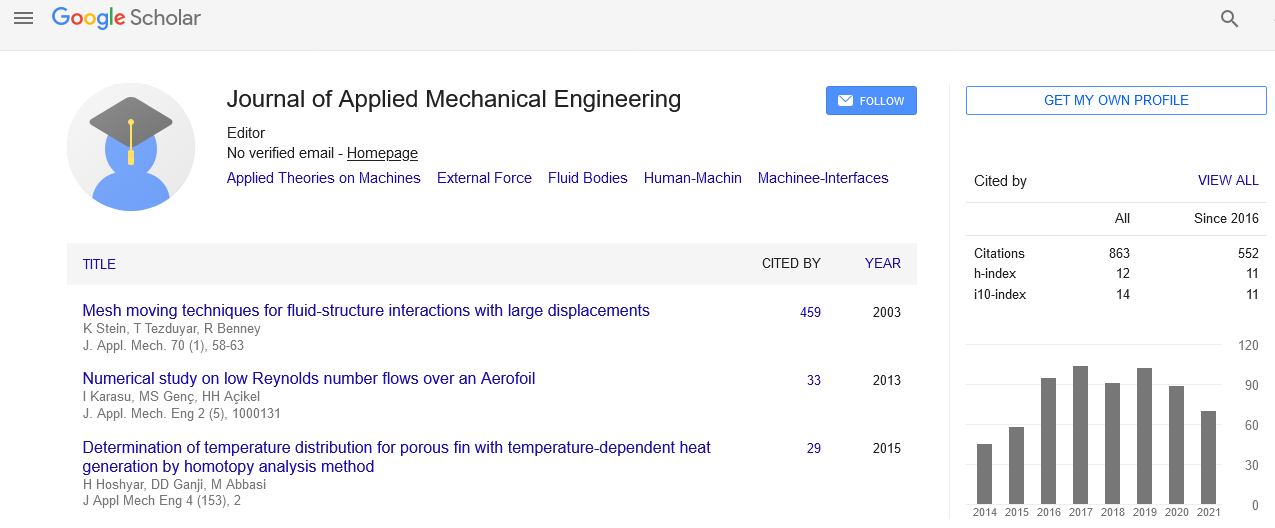Indexed In
- Genamics JournalSeek
- JournalTOCs
- CiteFactor
- RefSeek
- Hamdard University
- EBSCO A-Z
- OCLC- WorldCat
- Publons
- Google Scholar
Useful Links
Share This Page
Journal Flyer

Open Access Journals
- Agri and Aquaculture
- Biochemistry
- Bioinformatics & Systems Biology
- Business & Management
- Chemistry
- Clinical Sciences
- Engineering
- Food & Nutrition
- General Science
- Genetics & Molecular Biology
- Immunology & Microbiology
- Medical Sciences
- Neuroscience & Psychology
- Nursing & Health Care
- Pharmaceutical Sciences
Perceived emotion induced by a surface with random roughness
International Conference on Design and Production Engineering
July 25-26, 2016 Berlin,Germany
Jihong Hwang, Taezoon Park, Seung Ki Moon and Wonil Hwang
Soongsil University, Korea
Nanyang Technological University, Singapore
Seoul National University of Science &Technology, Korea
Scientific Tracks Abstracts: J Appl Mech Eng
Abstract:
This study investigated the type of emotions induced by a surface which has a random pattern with different roughness. In a product design, the surface finish plays an important role for building the first impressions since even the same material can generate different look and feel depending on the surface patterns. Considering that the first impression is highly dependent of the affective processing of the perceived information, it is meaningful to quantify the effect of surface patterns on the emotions. However, the emotions induced by a tactile interaction with the surface were not thoroughly revealed yet. In this study, the perceived emotions induced by a surface with a random pattern were empirically collected and classified. In order to simulate a natural surface, test specimens have random patterns which were fabricated by a 3D printing machine. Five voluntary participants recruited from a university tested the specimen. The participants blindly touched the test specimen and rated the invoked emotions by a questionnaire. The questionnaire items were adjectives representing tactile feelings which were collected from the literature and refined for the experiment; warm, cold, slippery, sticky, smooth, rough, hard, soft, uneven, flat, coarse, fine, dimply, grainy, sparse and slick. The result showed a close relationship between the roughness and some emotional items. The findings of this study can help designers choosing a roughness level to induce a predetermined emotion. By providing a quantifiable guideline relating the emotions and physical properties, it could support designers‚?? decision making processes for a product design.
Biography :
Jihong Hwang is an associate professor in Seoul National University of Science and Technology, Seoul, South Korea. He got his PhD degree in industrial engineering at Purdue University, West Lafayette in USA in 2005. He received masters’ and bachelor’s degrees in Mechanical Design and Production Engineering from Seoul National University, Seoul, South Korea. His research interests are in the areas of haptic design, affective design and human-machine interaction.
Email: hwangjh@seoultech.ac.kr

